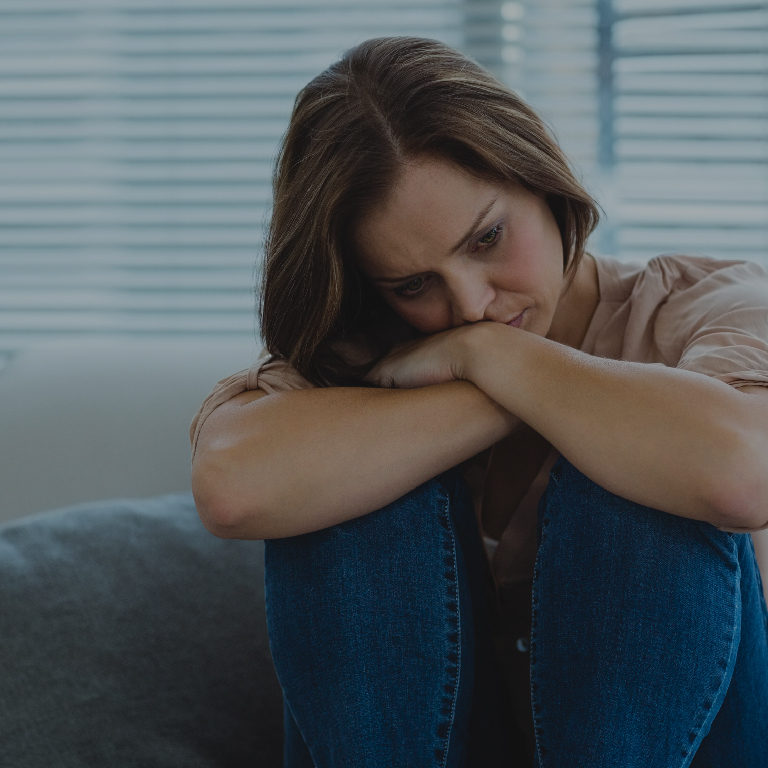There’s now considerable evidence suggesting that compared with people in previous decades, we spend less time with family and friends. We have fewer close friends and are less involved in our communities. A recent study found that over half of the American population report feeling lonely.
While loneliness is at times a natural human emotion, extreme loneliness and its impact on mental wellbeing cannot be overstated. Loneliness has far-reaching consequences on both our mental and physical health.
Prolonged periods of isolation can lead to low mood and anxiety. When we feel disconnected from others, our self-esteem and self-worth can suffer. We may begin to question our social abilities, further isolating ourselves and creating a vicious cycle of social anxiety.
Loneliness can also hinder emotional regulation. When you lack the support and connection that comes from healthy relationships, you may struggle to manage your emotions effectively. This can lead to emotional instability and an increased vulnerability to mood swings.
So, what can you do to cope with this challenging emotion? Here are some tips that we hope you find helpful.
17 Ways to Feel Less Lonely
- Take a closer look at the thoughts that run through your mind when you’re feeling lonely. Are there recurring negative thoughts about your self-worth, your ability to connect with others, or your past experiences? Do you have a tendency to ruminate? Noticing and challenging unhelpful thought patterns can be a very helpful tool for changing your emotional state. The Thinking Slow Method inside The Mental Wellbeing Toolkit is designed to help you with this.
- Pay attention to recurring patterns in your social interactions. Do you tend to feel lonelier after specific types of interactions or with certain individuals? Identifying these patterns can help you understand which social contexts or relationships might contribute to your loneliness.
- Assess whether your expectations in social interactions are realistic and healthy. Sometimes, expecting too much from others in terms of their responsiveness or attention can lead to disappointment and feelings of loneliness. Adjusting your expectations to align with the realities of human interactions can help you approach social situations with a more balanced perspective.
- Try journaling about your thoughts, emotions and experiences to understand them better. Reflect on your relationship patterns and interpersonal effectiveness skills and explore how you can make positive changes.
- Attend social events – even if you feel hesitant. These occasions can lead to unexpected connections and memorable experiences. Taking action despite feelings of low mood and anxiety is essential for escaping the vicious cycle of poor mental wellbeing.
- Seek online connections. Explore Reddit, Facebook groups, or virtual Meetup groups related to your hobbies or interests. Reddit has communities designed to bring people together (here and here).
- Try to be kind to yourself. Loneliness is a common experience (as mentioned, over half of the American population reports feeling this way). Feeling lonely doesn't define your worth as a person.
- Recognize that vulnerability is a fundamental aspect of human connection. Being vulnerable means allowing yourself to be open and honest about your thoughts, feelings, and experiences, even if they include insecurities or fears. How much do you lean into vulnerability?
- Set realistic goals for social interactions, such as attending one social event per week or reaching out to a friend regularly. The dopamine rush you get from your achievements helps reinforce new behaviour. Acknowledge and celebrate your efforts, even if they result in small steps toward reducing loneliness.
- Use practical tools such as our Social Anxiety Exposure Worksheets, Social Connection Planner, The 30 Day Relationship Challenge and our Emotional Availability Journal.
- Exploring hobbies or activities you haven't tried before can introduce you to new people and interests. Check out our Indoor and Outdoor Nourishing Activities Lists in our Free Tools Library for inspiration.
- Seek out clubs, classes, or organizations that align with your interests. Consider volunteering for a cause you care about. These settings provide opportunities to meet like-minded people and foster new connections.
- Cultivate gratitude. Focus on the positive aspects of your life. Regularly acknowledging and appreciating the good things you have enhances mental wellbeing.
- If circumstances allow, consider traveling or exploring new places. Traveling can provide fresh perspectives and opportunities for meeting new people.
- Be open to different types of friendships. Sometimes, connections can form with people you might not have initially expected.
- Limit screen time. Social media can exacerbate feelings of loneliness. Studies have found that Instagram is the worst platform for mental health. Consider setting boundaries on your technology use.
- Be patient. Don't be discouraged by setbacks or slow progress. Stay committed to building connections and improving your social life. Overcoming loneliness can take time.
Summary
In a world that’s more interconnected than ever, it seems paradoxical that loneliness is on the rise. The impact of loneliness on both mental and physical wellbeing cannot be ignored. The causes of loneliness are incredibly complex, but the good news is that the complexity of the issue means there are a wide range of steps you can take to feel less lonely. Exploring tips, tools and resources for handling loneliness can help you on your journey to feeling more connected.
Why not print this article and use it to put together your own “Combatting Loneliness Action Plan”?
A Toolkit to Boost Your Mental Wellbeing
Research shows that self-help materials are often enough for people to overcome mild to moderate mental health difficulties without professional support.
Our self-guided program includes tools from CBT, DBT, ACT and more, so you can discover what works best for you. Check out The Mental Wellbeing Toolkit today – it's "like 10 therapy sessions in one."




